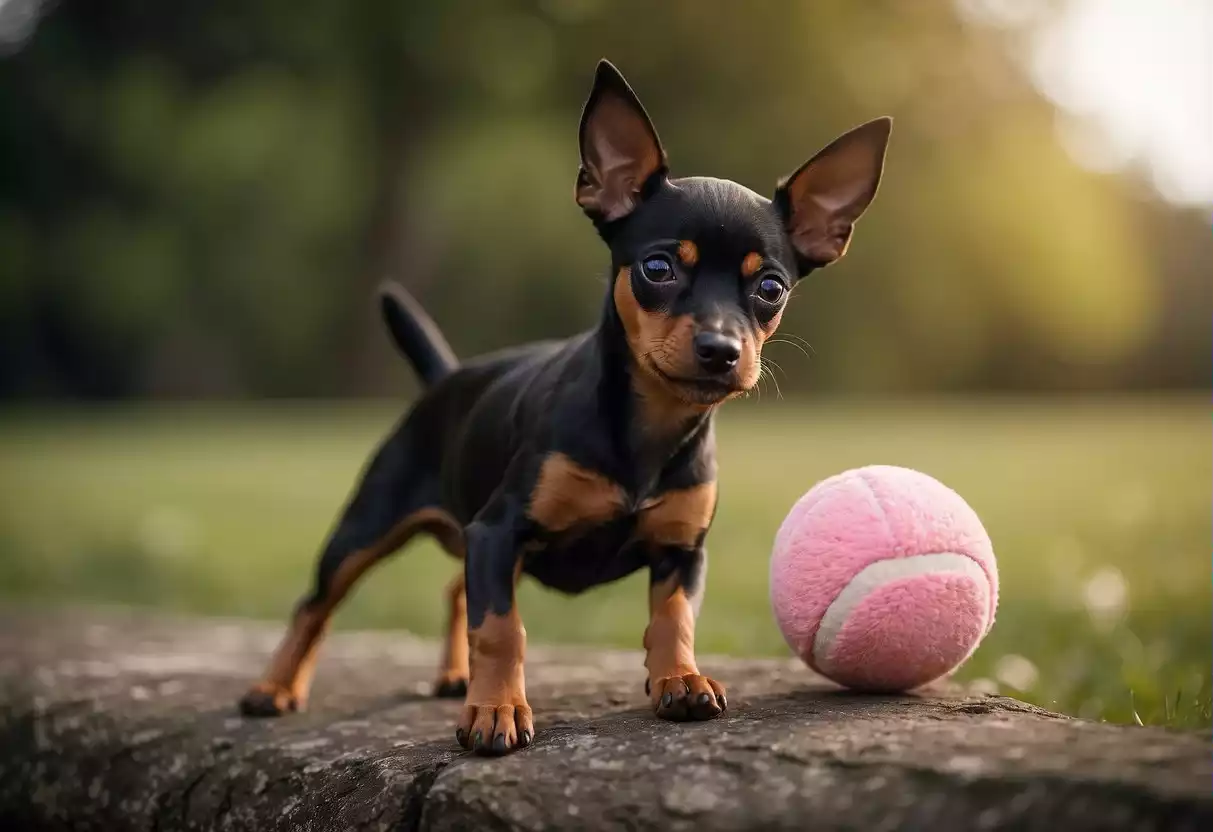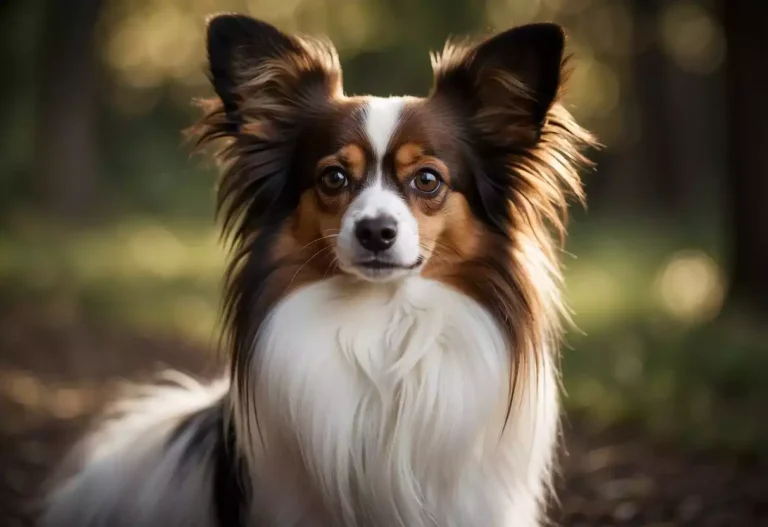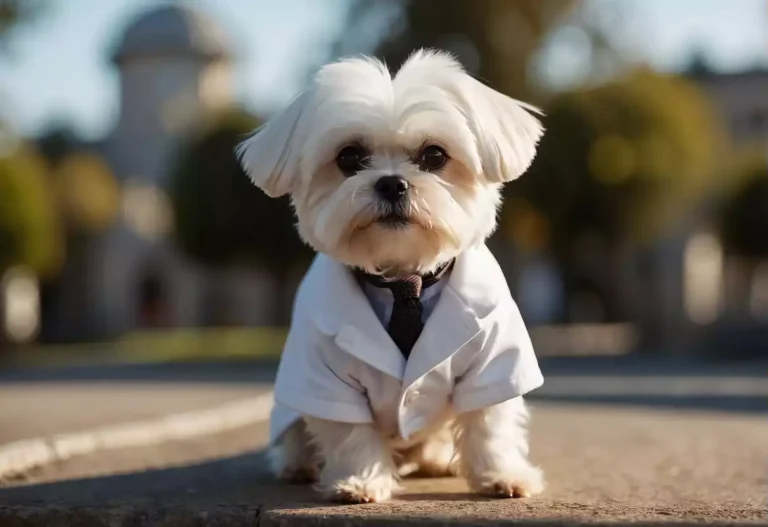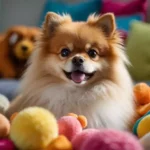As a proud owner of a Miniature Pinscher, I can attest to the charm of this breed. Despite their small size, they are full of personality and energy. In this guide, I will share everything you need to know about Miniature Pinschers, from their historical origins to their ideal care and training.
Miniature Pinschers are small but robust dogs, with a short, shiny coat in various colors. They are known for their elegance and alertness, making them an attractive pet for many people. However, their energy and loyalty make them an ideal companion for active individuals who are looking for a dog that can keep up with their lifestyle.
In this guide, we will explore the history of the Miniature Pinscher, their characteristics and personality, as well as their care and training needs. Whether you are a first-time owner or a seasoned dog lover, this guide will provide you with all the information you need to know about the charming Miniature Pinscher breed.
Table of Contents
Origins and History of the Miniature Pinscher
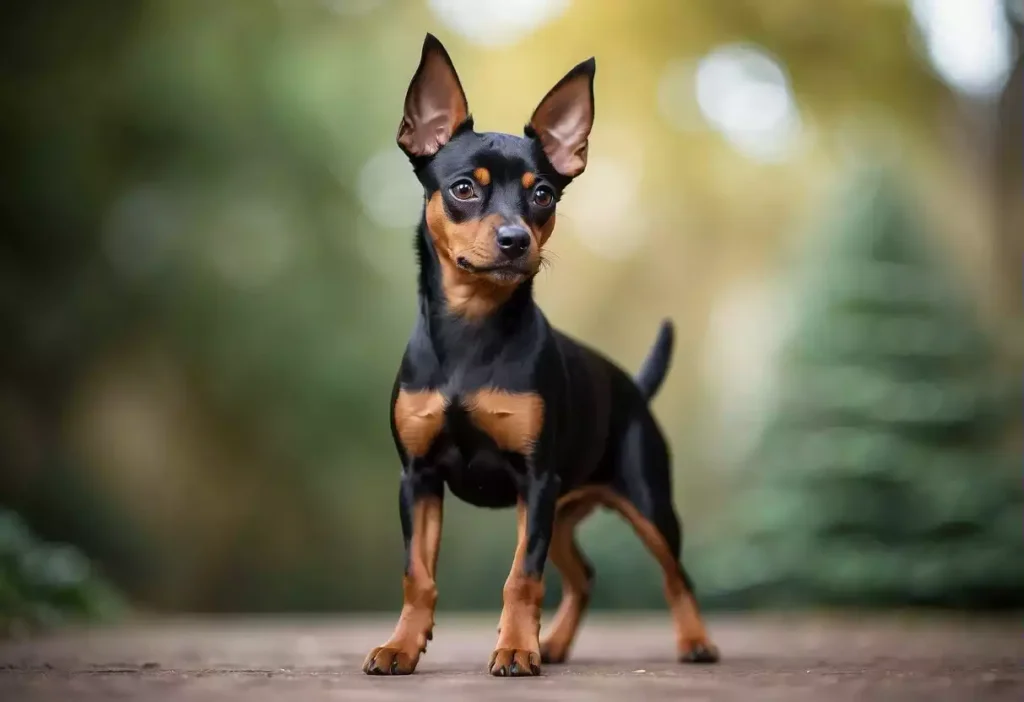
I find the history of the Miniature Pinscher to be fascinating. This breed can trace its origins back to Germany several centuries ago, where it was primarily bred as a ratter. The breed is not a downsized version of the Doberman Pinscher, contrary to popular belief; in fact, it predates the Doberman by at least a few centuries.
The Miniature Pinscher’s ancestry includes a mix of older breeds such as the Dachshund, Italian Greyhound, and the German Pinscher. The breed’s name in German is Zwergpinscher, which roughly translates to “dwarf biter.” This name reflects their original purpose as a rat hunter.
In the early 1900s, the Miniature Pinscher was recognized as a distinct breed in Germany. They were eventually brought to the United States, where they quickly gained popularity as a companion animal due to their small size, lively personality, and loyalty to their owners.
Today, Miniature Pinschers are still beloved for their energy and trainability. They make excellent companions for active individuals and families. They are also popular in dog sports such as agility and obedience competitions.
The Charm of the Miniature Pinscher
Physical Attributes
As mentioned earlier, Miniature Pinschers are small dogs, measuring between 25 and 30 cm in height and weighing between 3 and 5 kg. They have a short, shiny coat that comes in various colors, including black, chocolate, and red. Their ears are naturally erect, and their tails are usually docked.
Temperament
Miniature Pinschers are known for their energetic and lively personalities. They are brave and confident, always eager to explore their surroundings. They are also intelligent and loyal to their owners, making them great companions for active people.
However, it is important to note that Miniature Pinschers can be stubborn and territorial if not socialized properly. Early socialization and training are essential to ensure that they learn appropriate behaviors and do not become overly aggressive towards strangers or other dogs.
In addition, Miniature Pinschers are known for their high-pitched barking, which can become excessive if not properly managed. It is important to train them to stop barking on command to prevent this from becoming a nuisance behavior.
Caring for Your Miniature Pinscher
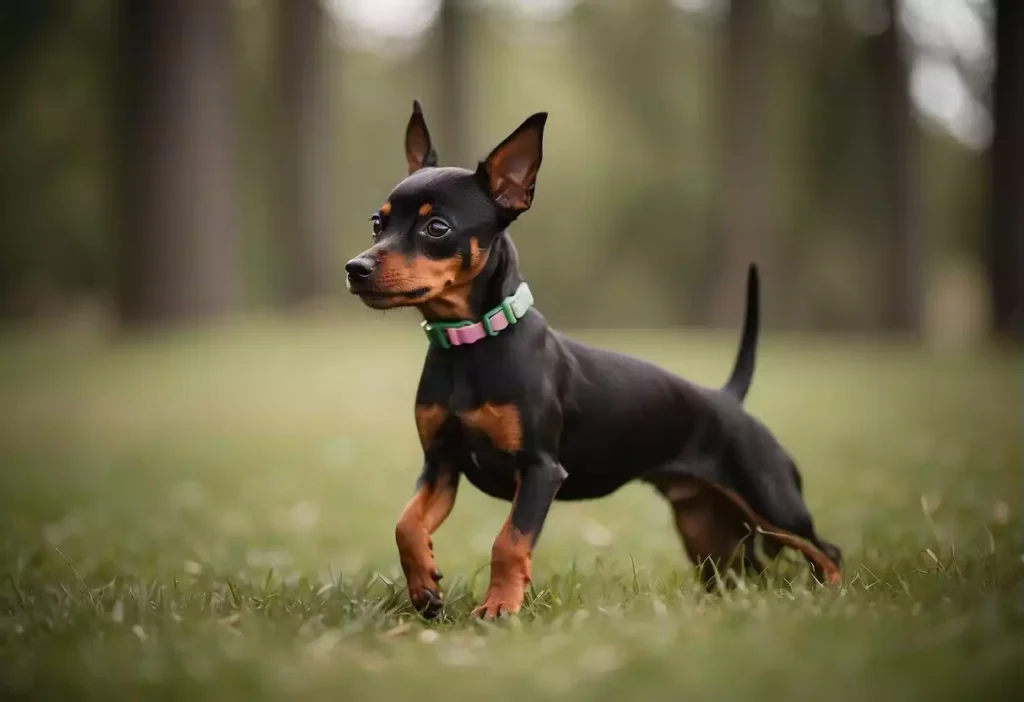
As an owner of a Miniature Pinscher, it is important to take good care of your furry friend. Here are some tips on how to keep your Miniature Pinscher healthy and happy.
Diet and Nutrition
Feeding your Miniature Pinscher a balanced diet is crucial to their overall health. As a small breed, they require a diet that is high in protein and low in fat. I recommend feeding your Miniature Pinscher a high-quality dog food that is specifically formulated for small breeds. You can also supplement their diet with fresh fruits and vegetables, such as carrots and green beans, to provide them with additional nutrients.
It is important to monitor your Miniature Pinscher’s weight, as they are prone to obesity. Overfeeding and feeding table scraps should be avoided to prevent weight gain.
Exercise Needs
Miniature Pinschers are energetic dogs that require daily exercise to stay healthy and happy. They enjoy going for walks, playing fetch, and running around in a fenced yard. I recommend providing your Miniature Pinscher with at least 30 minutes of exercise each day to keep them physically and mentally stimulated.
Health and Veterinary Care
Miniature Pinschers are generally healthy dogs, but they are prone to certain health issues such as patellar luxation, which is a condition that affects the kneecap. Regular veterinary check-ups are important to catch any health issues early on. I recommend taking your Miniature Pinscher to the vet at least once a year for a check-up and vaccinations.
In addition to regular check-ups, it is important to maintain good dental hygiene for your Miniature Pinscher. Brushing their teeth regularly and providing them with dental chews can help prevent dental problems.
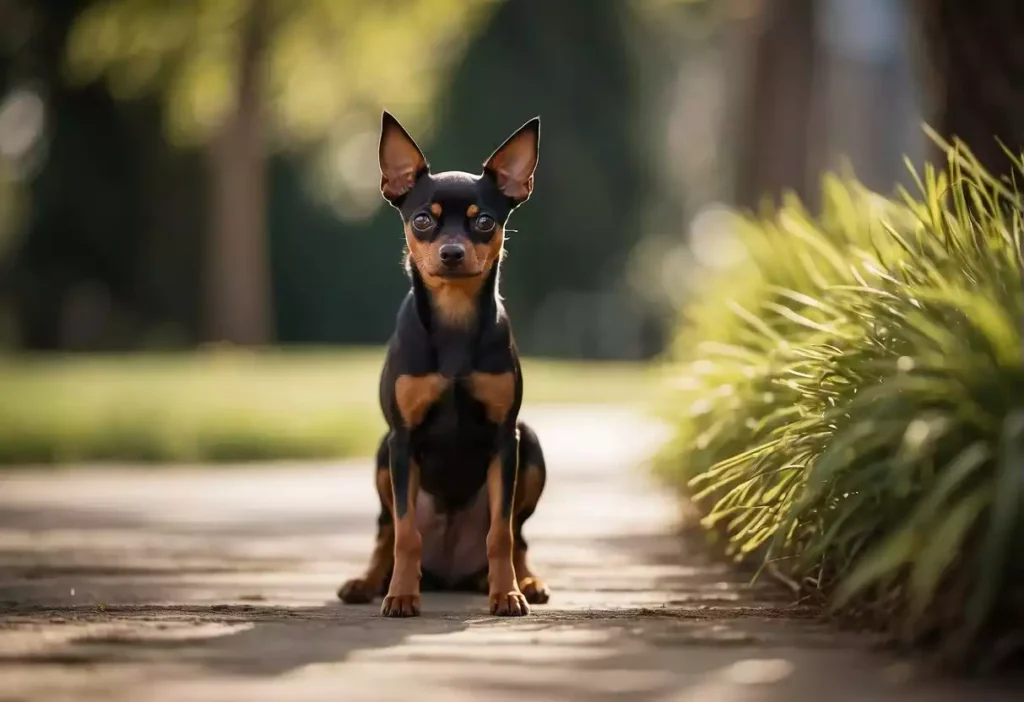
Training Your Miniature Pinscher
As an energetic and intelligent breed, Miniature Pinschers require proper training and socialization to become well-behaved companions. In this section, I will cover some effective training techniques, behavioral training, and socialization tips.
Training Techniques
Positive reinforcement is the most effective training technique for Miniature Pinschers. Rewarding good behavior with treats, toys, or praise will motivate them to repeat the behavior. Punishing bad behavior, on the other hand, can lead to fear and aggression.
Consistency is also key when training your Miniature Pinscher. Establishing a routine and sticking to it will help them understand what is expected of them. Short training sessions throughout the day are more effective than long ones, as Miniature Pinschers have short attention spans.
Behavioral Training
Miniature Pinschers are known for their stubborn personality, which can make behavioral training challenging. However, with patience and consistency, you can teach them appropriate behaviors.
One common behavioral issue with Miniature Pinschers is barking. To discourage excessive barking, teach them a “quiet” command and reward them when they stop barking. You can also distract them with toys or treats to redirect their attention.
Another behavioral issue is jumping on people. Teach them a “down” command and reward them when they obey. Consistently ignoring them when they jump up will also discourage this behavior.
Socialization
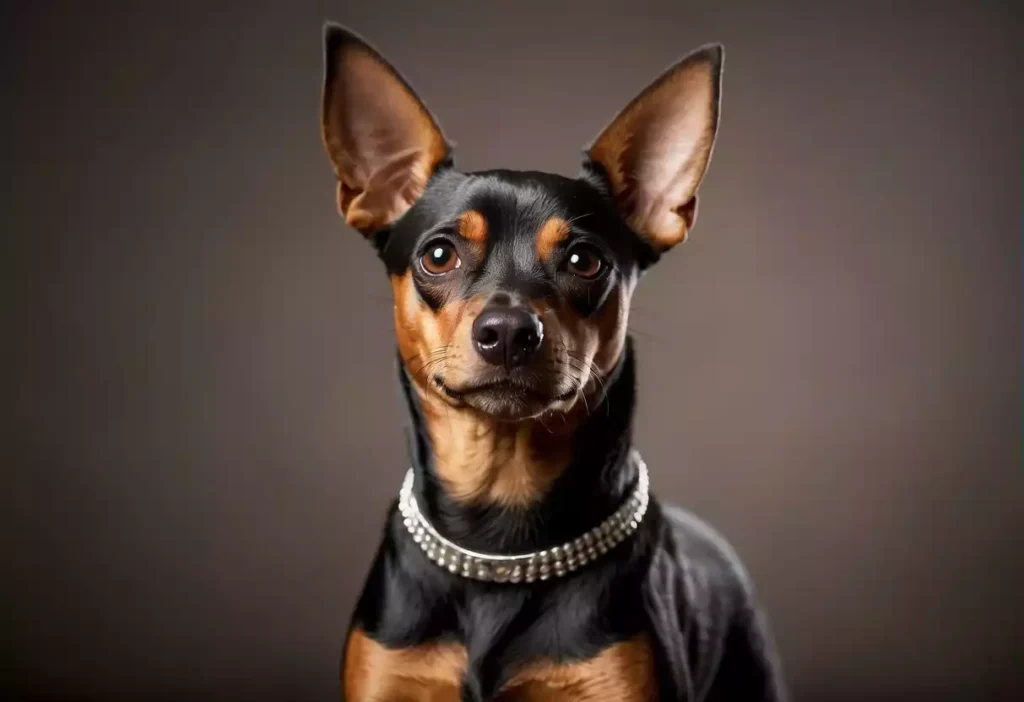
Socialization is crucial for Miniature Pinschers to prevent territorial behavior. Expose them to different people, animals, and environments from a young age. This will help them become more confident and well-adjusted.
Take your Miniature Pinscher on walks, to the park, and to dog-friendly stores. Introduce them to other dogs and people, and reward them for good behavior. This will help them learn appropriate social skills and prevent aggression towards strangers.

